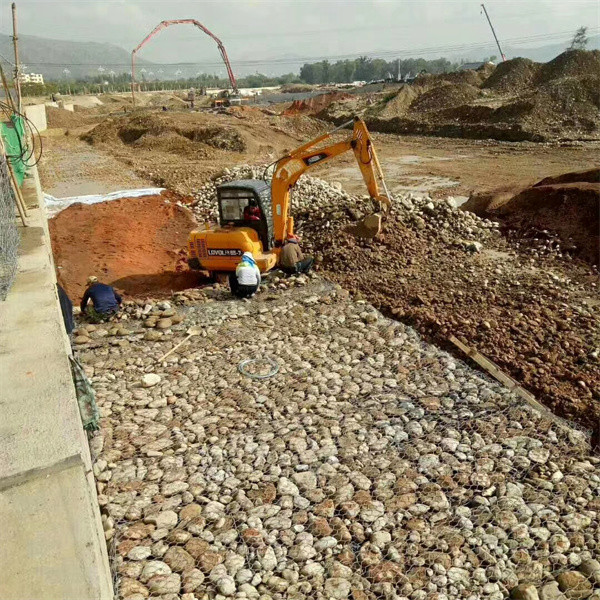ное. . 18, 2024 13:22 Back to list
Quality Gabion Cages Provider for Durable Landscaping and Erosion Control Solutions
Understanding Gabion Cages and Their Suppliers
Gabion cages have emerged as a versatile solution in various construction, landscaping, and environmental engineering projects. As interest in sustainable building practices grows, these wire mesh containers filled with stones have found applications ranging from erosion control to decorative landscaping. However, the effectiveness of gabion cages largely depends on sourcing them from reputable suppliers. This article delves into what gabion cages are, their applications, and how to choose the right supplier.
What are Gabion Cages?
Gabion cages are rectangular or cylindrical wire mesh containers that are typically filled with rocks, stones, or other suitable materials. The term “gabion” is derived from the Italian word “gabbione,” meaning “big cage.” They have been used for centuries, but their modern popularity is attributed to their durability, ease of use, and aesthetic appeal.
Gabion cages are commonly made from galvanized steel wire or PVC-coated wire, providing resistance to corrosion and weathering. Their design allows for flexibility, making them ideal for structures that may experience soil movement or shifting. The permeability of gabion cages also means that they allow water to flow through, reducing hydrostatic pressure behind retaining walls and promoting drainage.
Applications of Gabion Cages
Gabion cages have a wide array of applications. Here are a few notable uses
1. Erosion Control Gabions are often utilized in riverbank stabilization projects. Their structure helps to dissipate energy from flowing water, reducing soil erosion.
2. Retaining Walls Gabion walls are a popular choice for earth retention. They can support large amounts of soil and prevent landslides in susceptible areas.
3. Noise Barriers Gabions filled with stones can serve as effective noise barriers along highways or railways, mitigating sound pollution for surrounding communities.
4. Landscaping Features Beyond functional uses, gabion cages can also enhance the aesthetics of a landscape. They can be creatively used for garden walls, seating areas, or art installations.
gabion cages supplier

5. Flood Control Gabion cages can be used to create temporary barriers during flood events, redirecting water flow and protecting vulnerable areas.
Choosing the Right Supplier
When looking for gabion cage suppliers, it is crucial to consider a few key factors to ensure you choose a reliable partner
1. Quality of Materials Ensure that the supplier uses high-quality materials that meet industry standards. Look for suppliers that offer galvanized or PVC-coated wire cages for enhanced durability.
2. Experience and Reputation Consider suppliers with a strong track record in the industry. Reading customer reviews and asking for references can provide insight into their reliability and product quality.
3. Customization Options Depending on your project’s requirements, you may need gabions of specific sizes or designs. A good supplier should offer customization options to cater to your needs.
4. Delivery and Support Timely delivery and customer support are vital, especially for large projects. Verify the supplier's ability to meet deadlines and provide assistance during the installation process.
5. Pricing While it is important to consider budget constraints, avoid opting for the cheapest option without evaluating quality. A holistic approach that balances cost and quality will yield the best results in the long run.
Conclusion
Gabion cages represent a practical and environmentally friendly solution for various construction and landscaping challenges. By partnering with a reliable supplier, you can ensure that your gabion projects are successful. Whether you are looking to stabilize a bank, control erosion, or enhance the aesthetics of a space, gabion cages are a smart choice that combines durability, versatility, and visual appeal. Investing time in selecting the right supplier will set a strong foundation for the success of your project.
-
Visualizing Gabion 3D Integration in Urban Landscapes with Rendering
NewsJul.23,2025
-
The Design and Sustainability of Gabion Wire Mesh Panels
NewsJul.23,2025
-
The Acoustic Performance of Gabion Sound Barriers in Urban Environments
NewsJul.23,2025
-
Mastering the Installation of Galvanized Gabion Structures
NewsJul.23,2025
-
Gabion Boxes: Pioneering Sustainable Infrastructure Across the Globe
NewsJul.23,2025
-
Custom PVC Coated Gabion Boxes for Aesthetic Excellence
NewsJul.23,2025
-
Installation Tips for Gabion Wire Baskets in Erosion Control Projects
NewsJul.21,2025






